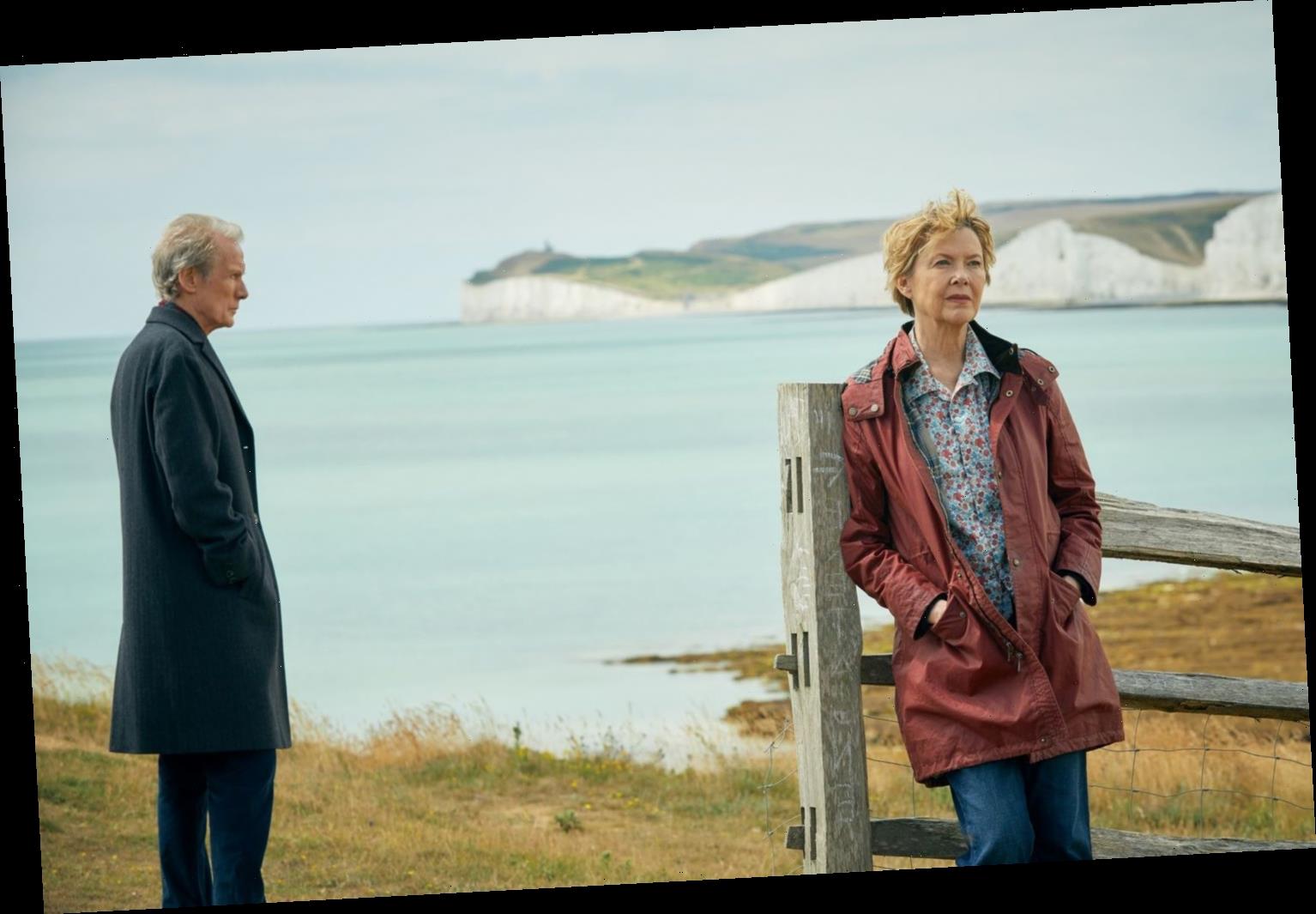Hope is indeed in short supply in William Thompson’s fussy, dour divorce drama “Hope Gap.” Adapted from Thompson’s own play (the more intriguingly titled “The Retreat from Moscow”), “Hope Gap” picks up nearly three decades into the marriage of Grace (Annette Bening) and Edward (Bill Nighy), and about 10 minutes before the union’s total collapse. Run through with the requisite tropes of a divorce drama — the tear-stained arrival of divorce papers, spying on the “other woman,” talking trash to the child caught in the middle — “Hope Gap” finds little new ground to tread, though Bening’s ability to transform a dull role bolsters the film’s second half.
Introduced through a series of voiceovers meant to set up the film’s three primary characters — a conceit that gets old fast, only to reappear at random moments throughout the rest of the film — “Hope Gap” opens with son Jamie (Josh O’Connor) musing about the film’s eponymous location, a local spot that once held happy memories for his family of three. Soon enough, mom Grace is ambling nearby, merging her own voiceover (this one about poetry; you know she’s British because she quotes Yeats at random) with the more downbeat ruminations of husband Edward, who prefers nattering about ancient history.
Why any of this should be delivered via voiceover? The film never answers that question, and even the seemingly important observations (“I never asked myself what she was thinking, or if she was happy,” Jamie muses in the film’s opening minutes about his own mom) all but beg for a different mode of expression.
The three-act structure of Thompson’s play is most apparent in the film’s first minutes, which hinge on a visit from Jamie that happens just as his father prepares to leave his mother for another woman. No one in the family is very happy, but Grace’s delusion borders on the embarrassing. As she flits through the unbearable first 20 minutes of “Hope Gap,” Bening vacillates between giddily unpacking the “magic” of candles, flipping tables out of anger, staring dolefully at Edward, and making fun of Jamie for living alone. Nowhere in that mess, however, does there seem to be a real person.
Nighy’s Edward is distant and cold to the point of comedy, as if the beloved actor was poking fun at his worst dramatic roles instead of inhabiting a fresh one. Jamie is struggling with his own relationship problems, which (of course) dovetail with his parents’ issues. “Maybe you just weren’t there for her enough,” a friend says as he whinges about a derailed love affair. (Jamie’s two best friends emerge as the only reasonable people in the film, and they are firmly relegated to supporting status.)
“Hope Gap”
Roadside Attractions
As a mechanical Edward tells his only child he’s leaving his mother, the film’s biggest blunders become insurmountable. Edward hems and haws over train schedules while Jamie just looks annoyed to be there, as Grace natters about without realizing her entire life is about to implode. It’s so intimate that it’s painful, but with little to link audiences to the troubles of this trio, “Hope Gap” cannot inspire anything beyond vague pity and secondhand embarrassment. Soon enough, you’ll be begging for Edward to get on with it, leave Grace, move out, move on, and free everyone from this trauma.
Thankfully, it gets better. As “Hope Gap” moves away from the doom-and-gloom of the inevitable breakup (and the film makes a strong case that the dissolution of Grace and Edward’s marriage was inevitable), it finds real emotion in its quieter moments. While it’s still beholden to dull screaming matches and a baffling number of comparisons between real life and Wikipedia editing (yes, really), some bigger swings do succeed, like when a shell-shocked Grace keeps “seeing” Edward sitting in their house long after he’s gone. It’s the kind of moment that’s been done to death in films of this ilk, but Bening’s ability to twist Grace into new shapes as the film plods on adds previously unforeseen dimension.
Shots of dark humor (Grace adopts a dog she names Edward, and she loves to teach him new tricks) spark the film’s second half, and Bening finds fresh complexities in Grace and actual empathy that was previously in short supply. Thompson never brings that same zing to the deeper questions of “Hope Gap” — What’s so bad about being selfish? Why shouldn’t these emotions be messy? — and a thin exploration of suicidal ideation only exists as a dramatic conceit for a flailing feature. However, Bening’s ferocity is strong enough to pull the film to its strange ending. Everything must end (marriages, movies, mediation sessions), but it’s only Bening that comes through “Hope Gap” with more to show for it, finding something better on the other side of something terrible.
Grade: C+
Roadside Attractions will release “Hope Gap” on Friday, March 6.
Source: Read Full Article

